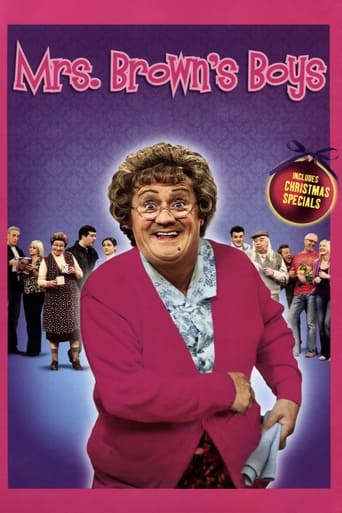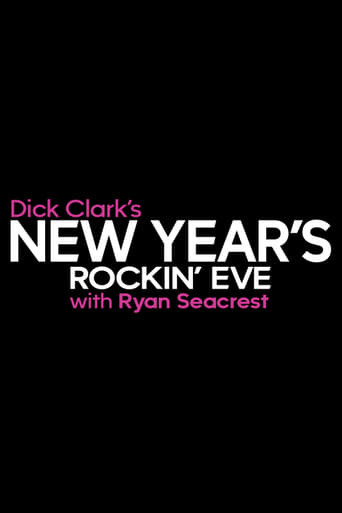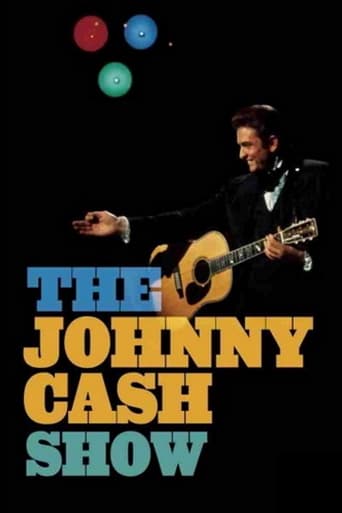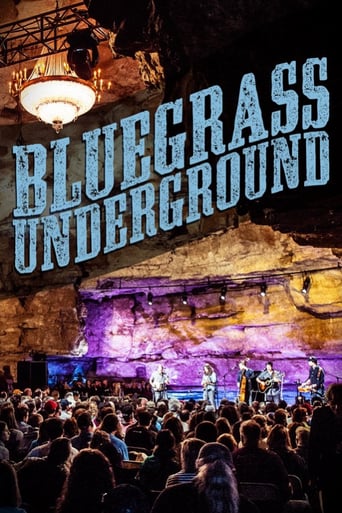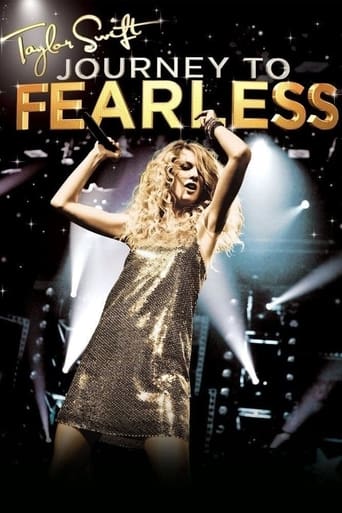

Rainbow Quest (1965)
Legendary folk musician Pete Seeger shares stories and songs with some of the folk and country music greats of the 1960s such as Johnny Cash, June Carter, Mississippi John Hurt, The Stanley Brothers and Doc Watson.
Seasons & Episode

The Clancy Brothers and Tommy Makem from Ireland sing traditional and contemporary Irish songs, including "Butcher's Boy." Seeger joins Tom Paxton, a singer/songwriter, on his song "Ramblin' Boy."

This is a solo performance by Seeger in which he sings some of the songs composed by the famous black folksinger Huddie Ledbetter. He also performs his well-known allegorical story about the power of music, "Abiyoyo." Rare films of Leadbelly are included.

Seeger and Elizabeth Cotton sing her famous song, "Freight Train" and she demonstrates her left-handed guitar playing. Rosa and Rafael sing songs from their native Puerto Rico, including "Las Popules de la Tierra" (The Poor People of the World).

Ruth Rubin is America's foremost collector of Yiddish folk music and the translator of countless Yiddish songs. Here she performs several well-known Yiddish songs including "Chanuke O Chanuke" and "Tumbalalayka."

Jean Ritchie, long-time collector of Cumberland Mountain songs, sings from her extensive repertoire and plays the dulcimer. She also displays several folk toys. Bernice Reagon sings gospel and freedom songs a cappella.

Malvina Reynolds, who made up songs almost daily from stories she read in the newspapers, sings her famous "Little Boxes" among others. Jack Elliott, a protege of Woody Guthrie, sings some of Guthrie's songs including "Talking Dust Bowl" and "Talking Sailor Blues."

Bessie Jones and the children sing and dance a number of children's play-party songs such as "Thread & Needle" and "Drawing a Bucket of Water." Seeger sings Bob Dylan's "A Hard Rain's A-Gonna Fall" and several children's songs.

The group includes Pete Seeger's brother Mike, his brother-in-law John Cohen, and Tracy Schwartz. Among them they play fiddle, guitar, banjo, mandolin and autoharp on such songs as "Maid of Constant Sorrow," "Cuckoo Bird" and "Arkansas Sheik." Mike shows films of a Japanese fiddle band.

Robert Beers, his wife and daughter, sing in a hauntingly beautiful style including their own "Dumbarton's Drums." Mr. Beers plays the Psaltry, an ancient instrument that is plucked with feathers.

South African singer, dancer, songwriter Herbert Manana sings and dances several African songs including "Zula", "Wimoweh" and "Tinasizsw" (We Africans).

German-born Martha Schlamme, accompanied by Abraham Stockman on piano, sings several songs in German including the Brecht/Weill songs "Bilboa Moon" and "Pirate Jenny." She also sings several songs in Yiddish and Spanish and joins Pete in the World War II concentration camp song "Peat Bog Soldiers."

Three legendary figures of country folk music join Seeger with their guitars and fiddle in a long list of traditional songs, including "Old Dan Tucker" and "My Mother Chose My Husband."

Scholar Norman Studer talks about the folklore of upstate New York and introduces composer-fiddler-guitarist-quarry worker Grant Rogers. Rogers and Seeger trade songs, including "Down by the Glenside," "Bessie the Heifer" and "My Dirty Stream," one of Seeger's recent songs about the Hudson River.

With his songs and a display of cartoons and unusual documents, Seeger traces the history of political satire from the early days of the U.S. He sings such songs as "John Brown's Body,", "Casey Jones," "We Shall Overcome" and his own anti-Vietnam War song "King Henry."

Italian folk music is the subject of the program, including a film of a group sing in an Italian village. His guests, with two of their friends, accompanying themselves on guitars and accordion, sing songs from both northern and southern Italy, including "Eh Volla Volla" and "Manuela." Seeger sings "D-Day Dodgers," a song about the Italian campaign in World War II.

This program was taped a short time before Richard Farina's death in an auto accident on April 30, 1966, and contains many of the songs he wrote including "Celebration for a Grey Day," "Bold Marauder" and "Pack Up Your Sorrows." Richard plays harmonica and dulcimer (in a style all his own) and Mimi plays guitar.

Seeger and Roscoe trade traditional American songs including "John Hardy" and "Birdie, Pretty Birdie." Jean Redpath sings several songs from her native Scotland: "The Beggar Laddie," "The Sky Fisher's Song," I Lost Ma Love" and "The Branca's Gotten Loose and Etten all the Corn."

The Clinch Mountain Boys, which includes the well-known Stanley Brothers, sing a number of old-time favorites, including "Worried Man Blues," "The Clinch Mountain Backstep" and "I'm Thinking Tonight of My True Love."

Ms. Malkine specializes in songs from France, especially those from the Auvergne, a mountainous area in southern France whose songs are well-known in America. She sings "Baylero", a shepherd's song, accompanying herself on an unusual 6-string lute (with a simultaneous translation in subtitles on the screen). She also provides a French rendition of Seeger's "Where Have All the Flowers Gone?" and Seeger counters with a German translation.

This is a solo performance by Seeger, in which he sings some of the hundreds of songs composed by Woody, including "Philadelphia Lawyer," "Roll on Columbia" and "Put Your Finger in the Air," the popular children's song. Rare film footage and photos of Woody are included.

A combination of recent and traditional songs, including Pat Sky's well-known "Separation Blues" and Seeger's "Where Have All the Flowers Gone?" The Pennywhistlers perform songs from Bulgaria, Russia and South Africa in the original languages, including the original Russian song on which Seeger's "Where Have All the Flowers Gone?" is based.

Seeger and Chandler trade songs they have written, including Chandler's "Keep on Keeping On," "Beans in My Ears" and "Move on Over" and Seeger's "Walking Down Death Row," Seeger also sings such traditional songs as "Mrs. McGrath" (Irish) and "Die Gedanken Sind Frei" (Thoughts are Free) in German.

Donovan, the British recording star, sings a number of songs, accompanied on the sitar by Shawn Phillips, who also demonstrates the Indian instrument in detail. Rev. Gary Davis plays his guitar and sings some gospel songs including "I'm Feeling More Like Shouting" and "Oh Glory, How Happy I Am."

A young Russian emigré living in Canada, Alexander Zelkin trades songs from all over the world with Seeger. Sometimes they sing two songs to the same melody in two different languages. Seeger discusses the use of the tune to "Twinkle Twinkle Little Star" in different cultures. Zelkin sings "Sylvestrik," a French song, and "Oy Tumani," and Seeger sings his song "Bells of Rhymney," which is based on a Welsh poem.

Descendants of the Acadians who moved to Louisiana when the British made the French leave Nova Scotia, the Cajun Band shares its traditions and music. They sing a number of songs in their native language including (titles are translated) "I Passed Your Door and Didn't See Any Light" and "While Your Mother's Not Here Let's Dance Real Close." Seeger demonstrates his style of banjo playing and sings several "play-party" songs, including "Skip to My Lou," "Big Mammoo" and "Colinda."

Seeger and his guest Frank Warner sing songs of the Adirondack Mountains and reminisce about Yankee John and Frank Proffit. Proffit is seen in a film as he performed at the Newport Folk Festival. Included in the show are Frank Proffit's most famous song, "Tom Dooley," as well as "Little Men," "Little Phoebe" and "Hudson River Steamboat."

Paul Draper, the famous dancer, improvises to music played by his accompanist Coleridge Perkinson and to several songs and rhythms played by Seeger. Illustrating the importance of dance to a country's musical life, Seeger shows films of schoolchildren in Samoa, Indonesia and an East African Village.

The subject of this show is work songs and lullabies, the latter occasionally being the former, as when sung by a babysitter. We hear and see films of men singing as they work: boatmen in Ghana and woodsmen at Texas State Prison. Seeger welcomes to the show his sister Penny and her infant daughter Sonya, and mother and uncle sing a medley of lullabies, including "Hush Little Baby," "By and By" and "All the Pretty Little Horses." After the prisoners in the film sing "Long Gone," "Jody" and "Down by the Riverside," Seeger himself reprises "Down by the Riverside."

Israeli and Arabic music and poetry are presented in their original language and in translation. Seeger demonstrates how to make a shepherd's flute out of bamboo. Seeger on banjo and Bikel on guitar join together on the Israeli song popularized in this country by the Weavers, "Tzena, Tzena."

Addiss and Crofut, American folksingers who have traveled extensively in the Far East singing under U.S. Department of State auspices, together with Phan Duy, "the Woody Guthrie of Vietnam," explore the Vietnamese musical traditions. With Seeger joining in they sing several of the 350 songs Duy has written. They also sing the well-known American song "Clementine" in Vietnamese.

The fiddle and banjo are featured instruments in the Greenbriar Boys' repertoire of Blue Grass Music. Seeger joins in with his 12- string guitar and they sing "Wabash Cannonball," "The Midnight Special," "Danville Girl," "Dink's Song," and the Mexican song "La Feria Das Flores" (The Flower Fair).

Seeger relates three parables and then trades songs with the popular singer Judy Collins. Together they sing "Daddy You've Been on My Mind," Bob Dylan's "Fare Thee Well," "Wild Mountain Thyme," "Tim Evans" and Seeger's "Turn! Turn! Turn!" Photos made during Seeger's visit to a guitar-maker in Mexico are shown.

The Garlands tell about life in Kentucky in the days when the mineworkers' union was struggling to be a force in the mines. Jim Garland, a former mineworker himself, sings his "I Don't Want Your Millions Mister." Jim plays the jews harp to Seeger's banjo on "Turkey in the Straw." Seeger sings the union song "Which Side are You on?"

Sonny Terry, the blind harmonica player, and Brownie McGhee, on guitar, trade songs with Seeger, including "Rock Island Line," "I'm a Burnt Child," "Down by the Riverside" and many more.

In this return visit, Ms. Jones and the children sing and dance with Seeger playing "Skip to My Lou," "Beans in my Ear," "Cumberland Mountain Bear Chase" and "This Land is Your Land."

Paul Cadwell plays several banjo solos including a cakewalk, "Georgia Camp Meeting." Mississippi John Hurt, a singer who had faded from public view, was rediscovered in his eighties and began a whole new career, sings "Lonesome Valley," "John Henry" and "Goodnight Irene."

Playing their steel drums, the Hi-Landers sing songs of their native Trinidad, mostly in the Calypso tradition. Songs include "Mary Ann," "Love, Love Alone," "Yellow Bird," "Walk Around" and "When the Saints Go Marching In." Seeger shows a film on the making of steel drums from large oil containers.

Composer, singer, guitarist Buffy Sainte-Marie, through song and conversation expresses the American Indians' mixed feelings of love of country and bitterness at the unfair treatment they have received. Buffy demonstrates the mouth-bow and sings some of her own songs, "My Country 'Tis of Thy People You're Dying" and "Little Wheel Spin and Spin."

This episode features Johnny Cash and his wife, June Carter Cash as they talk about country music and its ties to the folk tradition. In the first VHS run of Rainbow Quest, this episode was withheld at the request of Pete Seeger because Johnny Cash was heavily on drugs during his appearance. However, in the late '90s this show was released to the public by Sholom Rubinstein.


